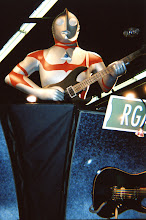
L.A. Times: You haven’t released a solo album in nine years. What made you decide that the time was right now, and what made you turn to Terrace Martin to do the lion’s share of production?
Kurupt: Terrace and I have been working together for quite some time, and I felt he deserved the opportunity to produce an entire album. He brought the best out of me musically. I’ve always liked to work with one producer for my albums, from Dre to Daz to Soopafly to Quik. I got this idea for the record one night when I was leaving the club and I saw the streetlights go out one by one as I was driving home. I felt like it was a metaphor for life passing me by, so I went to Terrace and said that we had to make an album together to make sure that that didn’t happen.
L.A. Times: During most of the last decade, it seemed that a lot of veteran '90s rappers had trouble finding their own lane or even consistently releasing music. But over the last two years, it seems like yourself and a lot of your peers have returned to form. What happened and why the sudden resurgence?
Kurupt: I think everybody was going through something, I know I was. In a sense, it’s just life and you get upset, and you respond. Everybody seemed like they were going through a hiatus where they were trying to figure it all out. I was trying to figure out who I was in real life. No one likes to hear a real life story unless they can see it, or digitalize it, or be a part of it musically. Sometimes you go through a hiatus and you shut down and do what you do. I’d experienced a separation from myself, Ricardo Brown and Kurupt, the artist.
L.A. Times: What did you take away from that hiatus?
Kurupt: I learned that I had to raise my kids. I had to make music for grown folks. It’s made for the kids too but it’s made for the adults primarily. I don’t make music for 14-year-olds anymore. I’ve learned a lot from the experiences I’ve had in this ball game. I’m damn near 20 years deep. In the end, I learned that you have to be patient. It’s not always about the music, it’s not always personal, I had to learn how to separate the two.
L.A. Times: Your collaboration with Quik connected with a lot of people. What did you take away from working with him?
Kurupt: I learned that patience is a virtue, that it’s OK to take your time and allow artists to do what they want to do. Artists do their best work when they’re in a comfortable spot. With the Quik project, we knew that we wanted to go some other place, without samples and B.S. We knew that it would turn out big.
L.A. Times: Your name continually pops up on greatest rappers lists. If you were going to compile your own best rapper’s list, who would be on it.
Kurupt: Rakim and Kool G Rap, Big Daddy Kane, LL Cool, Ice Cube. Those were my favorites when I was coming up. (source)


No comments:
Post a Comment